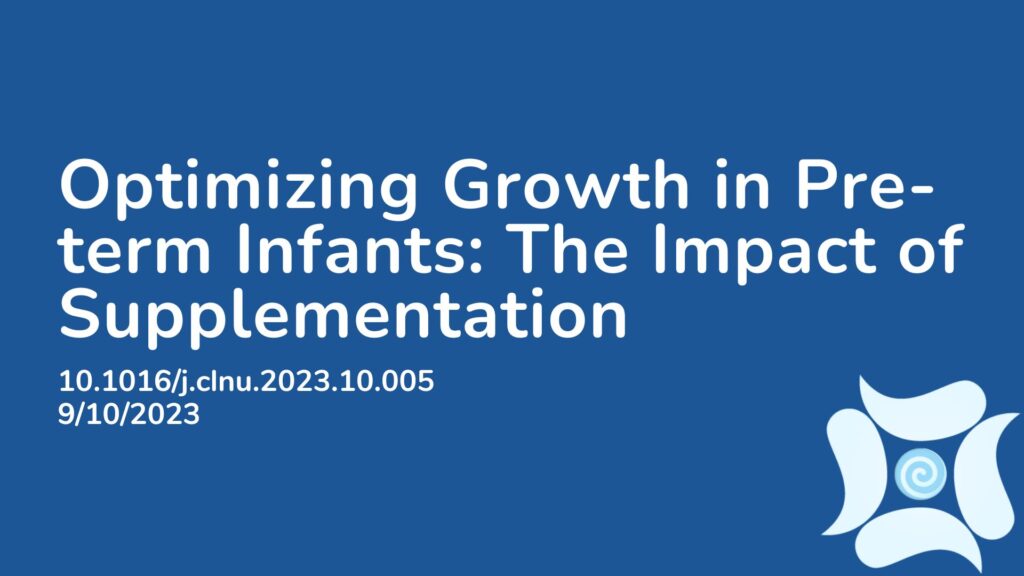Summary:
Nutrition plays a pivotal role in postnatal care, for both offspring and mother. Deviations in growth patterns such as growth failure have been linked to adverse long-term metabolic health outcomes. Certain nutrients such as arachidonic acid (ARA) and docosahexaenoic acid (DHA), play crucial roles as modulators of organ growth and development. However, whether supplementing with these nutrients improves the quality of fetal growth remains uncertain. The primary objective of this study was to re-evaluate a randomized-controlled trial that looked at the impact of early supplementation with ARA and DHA, measuring brain maturation, neonatal morbidities, and the quality of growth in pre-term infants born before 29 weeks of gestation. In comparison to the control group, the group that took the ARA and DHA supplements exhibited superior growth from birth. The authors concluded that early supplementation of ARA and DHA appears to confer benefits in terms of growth in very pre-term infants.
Abstract:
Background & aims: A balanced supply of arachidonic acid (ARA) and docosahexaenoic acid (DHA) may be crucial for quality of growth in preterm infants. This secondary analysis of a randomized controlled trial aimed to determine the effect of enhanced ARA and DHA supplementation on growth and body composition in infants born before 29 weeks of gestation. Furthermore, we aimed to study associations between human milk feeding, growth patterns and body composition. Methods: The ImNuT-trial randomized 121 infants to receive a daily supplement with medium chain triglycerides (control) or 100 mg/kg ARA and 50 mg/kg DHA (ARA:DHA group) from the second day of life until 36 weeks postmenstrual age. Growth and body composition were evaluated up to 3 months corrected age. Results: The ARA:DHA group showed better linear growth from birth to term equivalent age compared to the control group; mean difference in z score change from birth for length was 0.74 ([95% CI, 0.17–1.3]; p = 0.010). There were no differences in growth and body composition outcomes at 3 months corrected age between the groups. An increase in z score for weight after 36 weeks postmenstrual age and breastfeeding at 3 months corrected age were the strongest positive predictors of fat mass% at 3 months corrected age (both, p < 0.001). Conclusion: Early enhanced supplementation of ARA and DHA may be beneficial with respect to somatic growth in very preterm infants.
Article Publication Date: 9/10/2023
DOI: 10.1016/j.clnu.2023.10.005




